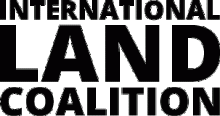Resource information
The topic of how best to make rangelands secure for local rangeland users is one of ongoing debates. The very nature of rangeland use – the need for landscape level planning incorporating spatially and temporally variable resources, and for recognising the multiple layers of use by multiple actors presents complexity that is not easily accounted for by the often inflexible and simpler land tenure systems that governments prefer to introduce. Hence these lands have been left without formal or statutory recognition or protection and been an easy target for land grabbing, encroachment or fragmentation. Given the mobility needs for peoples that make their livelihoods out of rangeland use, including pastoralists and hunter-gatherers, rangeland occupation structured along poor land use planning has a direct negative effect on them. Improvements in agricultural and mining technology, as well as increased demand for agricultural commodities, have meant that attention has turned to rangelands for large-scale investments. This is despite the fact that the suitability of the land for such purposes and the economic rationale for doing so is questionable. As a result conflicts between land users and over land use in rangelands have increased.
In order to open up space for dialogue on these issues, identify good practice, and to develop some agreement about what should be prioritised and how, the Land Portal Foundation and the Rangelands Initiative of the International Land Coalition agreed to facilitate an online discussion on Making Rangelands Secure. This builds on and links with other ongoing Initiatives including the Pastoralist Knowledge Hub (PKH) of FAO, the World Initiative for Sustainable Pastoralism (WISP) of IUCN, and the Coalition of European Lobbies for East African Pastoralism (CELEP).
The dialogue took place from January 29th to February 14th 2018 – this report summarises the key points raised and conclusions reached.




